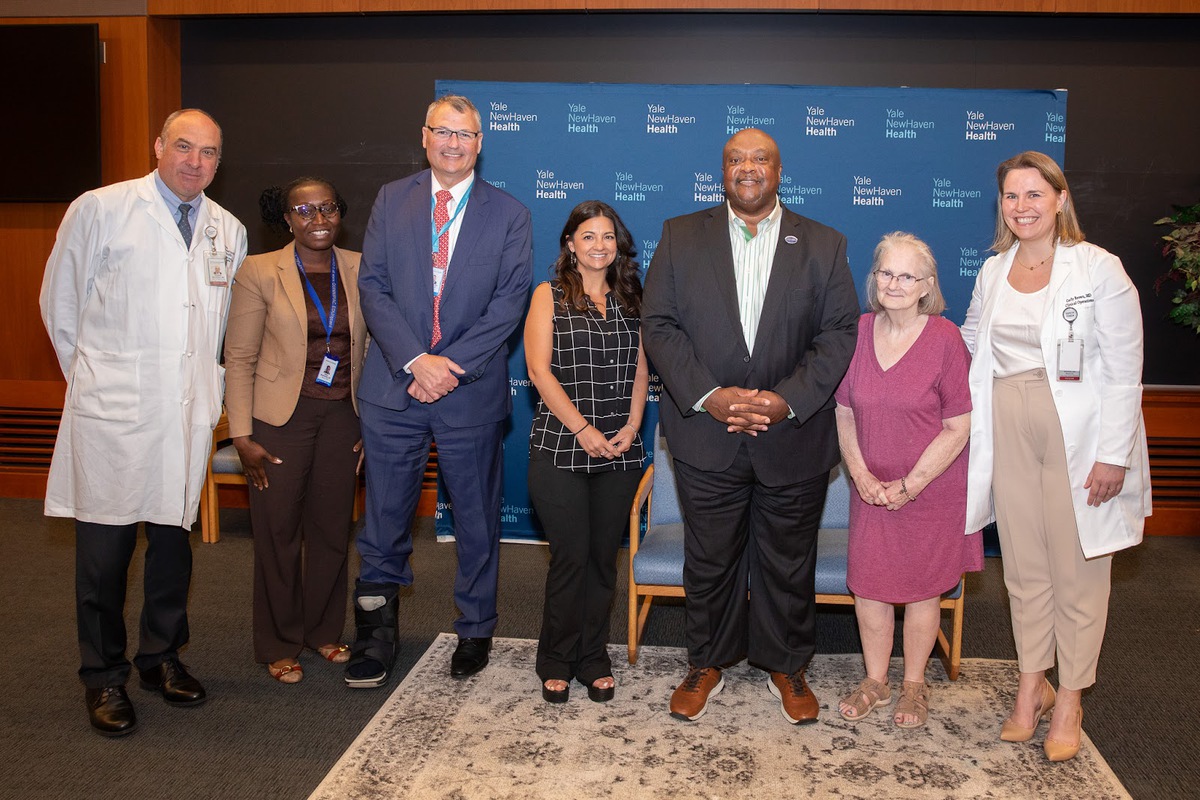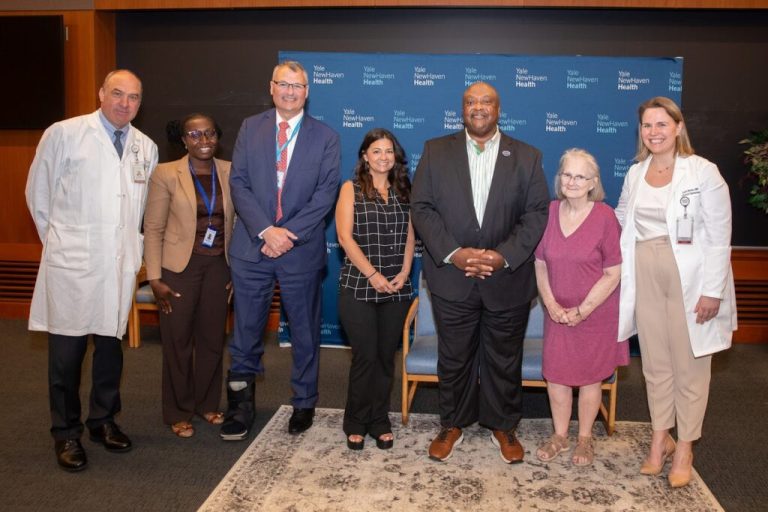The program provides hospital-level care in patients’ homes, offering services for a range of acute illnesses including heart failure, pneumonia and sepsis.
Janice Herr September 9, 2024 12:08 AM

Courtesy of Yale New Haven Hospital
Yale New Haven Health recently celebrated treating 1,000 patients through its Hospital at Home program.
On June 6, Yale New Haven Health System held an event to celebrate the milestone of treating 1,000 patients through its Hospital at Home program, which launched in 2022. The program provides hospital-level care in patients’ homes, offering services for a variety of acute illnesses, including heart failure, pneumonia and sepsis.
“The idea was to create an alternative pathway for seriously ill patients, allowing them to be treated safely at home, thus removing some of the bottlenecks (in the emergency department) and freeing up more room for patients who are seriously ill and need hospital beds,” said Nana Boerhema, head nurse of the Hospital at Home program.
The idea for the program came about when the Centers for Medicare & Medicaid Services created a waiver program in 2020 to allow for the delivery of acute hospital-level care in the home, said Thomas Balcezak, the health system’s chief clinical officer.
The Home Hospital Program serves patients within a 25-mile radius of Yale New Haven Hospital or Bridgeport Hospital. To make this possible, the health system partnered with Medically Home, a startup that provides hospital-level care in patients’ homes. Through its partnership with Medically Home, Yale New Haven Health is combining in-person visits with advanced telehealth technology to ensure patients receive a continuum of care.
“Medical Home is a leader in the field in exploring ways to transform inpatient care into care that can be delivered in the patient’s home,” Carly Brown, medical director for the program, told the News.
Because providing in-home hospital care was only possible after the Centers for Medicare & Medicaid Services created a waiver, implementing the program presented logistical hurdles. Before the program began, the health system had never provided care within a 25-mile radius of a hospital. As a result, program coordinators lacked the expertise and experience needed to understand the logistics of providing this care, Balcezak says.
Despite these challenges, the program has shown promising results in terms of safety and patient outcomes. There have been no significant safety incidents in patients’ homes, Brown said. Additionally, Brown said the program is seeing the same or better quality outcomes for patients.
“Patients are very happy to receive care in their own living space – they can eat their own food and sleep in their own bed, and that in itself enhances the patient experience,” Boerhemer told the News. “We think virtual nursing and at-home hospital care is the future. Finding new and innovative ways to do more in patients’ homes is the direction we need to head.”
Going forward, the program hopes to expand even further, a vision that aligns with the health system’s goal of transforming healthcare delivery to meet changing patient needs.
As the program expands, it aims to provide a flexible, cost-effective model that can serve as a blueprint for future health care delivery in the community and beyond.
“We’re not going to rest until we have 25, 30, 40, 50 patients at home,” Balcezak said.
Yale New Haven Health 789 Howard Avenue

